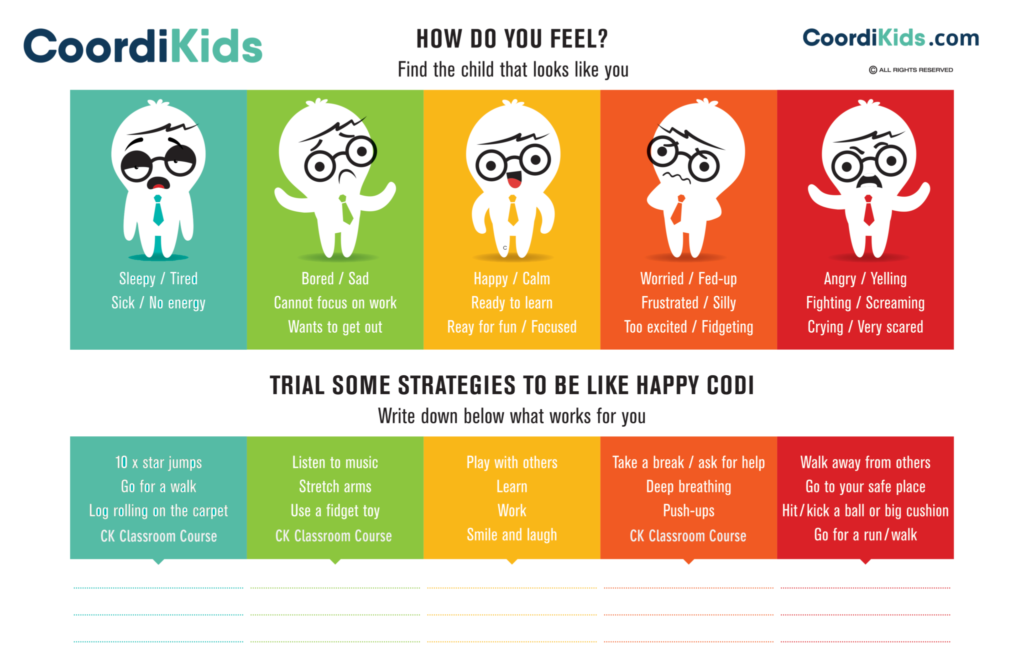General Information
10 Vital Tips to Prepare for Holiday Sensory Activities This Season
If your child has ADD, ADHD, Sensory Processing Disorder, or is highly sensitive, the holidays can be a parent’s nightmare. Instead of the holiday season bringing peace, enjoyment with extended family, and fun with new toys, parents of sensitive children often deal with overstimulation and meltdowns.
That’s why we are starting early with preparation tips for your family to prepare for holiday sensory activities this season!
By incorporating some specific kids’ holiday activities and self-regulation tips, we want to design a stress-free holiday preparation concept. So following this will help parents of children with sensitivities or attention deficit disorders.
1. Firstly, stick to routines whenever possible.
Kids with sensory processing disorders, ADD or ADHD need a routine. One of the biggest challenges our clients describe during the holiday season is a disruption in the routine. With the pile up of kids’ holiday activities, the routine can get further and further off track.
If you don’t already have mealtime or bedtime routines, start incorporating one now. (Bedtime routine tips.)
Even if meals are different or bedtime is later than usual during the holidays, keep the actions and the order of the routine the same. You may have other children staying with you that do not follow the same routine.
So, use this as an opportunity to share your sensory sensitive holiday routine with the whole family, and invite them to participate. Get your child involved. They will enjoy teaching their cousins and friends about how things are done in their own house. It will interest then to learn about the differences between everyone’s routines.

2. Secondly, make plans & schedules ahead of time.
One of the best things you can do to be sensory sensitive at holiday time is to plan ahead and use schedules. On days when activities will be atypical, it’s best to prepare your children in advance. Read books about the holiday season.
Or you could watch videos that demonstrate some of the activities you’ll be doing together. This way, if there are any aspects that make your child nervous, you can focus on preparing them on those areas in advance.
Create a holiday calendar together that sets the scene. A great holiday calendar can illustrate the timeline of the various kids holiday activities that you’ll be participating in together. Decorating days, parties, travel, family visits, visiting Santa, cooking treats. All of these can go onto your personally crafted calendar!
Be sure to over-estimate the amount of time each activity will take. Allow some breathing room and downtime in the schedule, even if it means missing one or two planned activities this year. Rushing makes sensitivities worse and tempers flare. So, allowing plenty of time will reduce the potential for meltdowns.
Schedule some alone time for your child to play and decompress. Also, plan a little one-on-one playtime with your child each day. This will allow you to check in on how he or she is coping along the way.
3. Use checklists when shopping to stay on task.
Holiday gift shopping can be so much fun! But it can also be overstimulating. Take your time, and break holiday shopping into components. Spend one day making a list of everyone you plan to buy gifts together for. Then, spend another day to make grocery lists for meals and treats.
If possible, browse online or in magazines in advance to get ideas for your list. Then, write down specific items for each person on the list.
Stores will be even more overwhelming than usual. They will have many new lights and decorations, large signs and banners. Furthermore, there will be sales to distract our attention from our task at hand!
You’ll likely need to plan several shopping trips together. Start with a small portion of your list for the first shopping trip that you can accomplish easily in an hour or so.
To avoid a meltdown or wasting your shopping time overwhelmed by choices, stick to your shopping list. Let your children know that once you’ve completed your list for that day, they can have a few minutes of free time to wander and look at some of the other items and decorations around the store.
4. Book your own sensory sensitive holiday accommodation.
If you’re traveling, opt for a private accommodation, rather than staying with large groups of family. Staying at extended-family’s homes might be fun for a little while. But everyone needs a break from time to time.
If finances allow, choosing a hotel or AirBNB will build in some breathing room and opportunities to decompress. Be sure to explain your motives to the family ahead of time to avoid hurting anyone’s feelings. It might even be an option to split the time – two nights with the family, followed by 2 nights at the hotel.
5. Keep up with rewards systems.
Earning rewards and using positive reinforcement are always the best methods to encourage good behaviour. Commend your children anytime you witness good behaviour. Make a list of examples of good behaviour that is expected during holidays.
You can include things like:
- sharing toys,
- teaching a family member something new,
- keeping a low voice while indoors,
- saying Please and Thank You,
- minding what other adults ask, and
- manners at the dinner table.
6. Plan a sensory sensory sensitive holiday escape area.
A lot of parents find that having a place they can retreat quietly with their child is so valuable. A sensory escape are that has low lighting, silence or soft music playing, and “sensory toys” helps their child to regroup after a moment of overwhelm or meltdown.
You should consider setting up a quiet place in your house or hotel. Alternatively, you can even set this up in your car if you plan on driving somewhere for your holiday festivities.
Sensory toys include:
- fidget toys,
- a favourite blanket to run their fingers through,
- playdough,
- oral stimulation bricks/bracelet/necklace, and
- a blanket to wrap up tightly in.
Remind your child to check in with his or herself throughout the kids holiday activities to see if it’s a good time to decompress in the sensory escape space.
7. Utilize a sensory diet.
A sensory diet can do wonders for preventing meltdowns. A sensory diet is simply a plan that parents use to make like easier for their child. They do this by using the plan to ensure that their child receives the sensory-rich activities he seeks at regular intervals throughout the day.
For a child who needs more sensory input to be in their optimal threshold zone, a typical sensory diet might go like this. It would include regular periods of play and movement in an area with high levels of sensory stimulation.
He can have 4-5 ‘movement breaks’ in which he can:
- do jumps on the spot,
- fitness exercises,
- enjoy a chewy or crunchy snack,
- carry heavy objects around (like helping pass out gifts!) , or
- utilize a fidget toy when physical movement is limited.
Conversely, a child who tends to have low thresholds and is easily overwhelmed, would have a different sensory diet. Their sensory diet would include periods of time where she can escape to an environment with very low stimulation.
4-6 times per day, she goes to the sensory escape area. This helps her physically and mentally decompress in order to be more ready to cope with the next overwhelming sensory situation.
Kids holiday activities can be worked around, or incorporated into a sensory diet plan as needed. Parents will know their child’s needs best!
8. Practice self-regulation techniques in advance.
Don’t wait until the holiday chaos to try out calming techniques or wearing sound-cancelling headphones. Kids holiday activities will be remembered with more fondness by all if they are managed well!
Some good physical activity before, sporadically during, and right after overwhelming situations have been proven helpful for children to adapt, recuperate from, or prevent meltdowns.
Other good techniques include breathing slowly, short visualization/meditation, and simply checking in with how you’re feeling together. We like to use the How Do You Feel chart to start discussions about our emotions and what we can do to adjust.

9. Know How to Soothe a Meltdown.
What does a full-blown meltdown look like in your child? Does he lie on the ground, screaming and fighting? Does she cry with wide eyes as if in terror, shaking, and sobbing while clinging to you?
Or is it more of a “shut down”? So, your child stops talking, covers his ears or eyes, finds a dark corner to hide in, or tucks his knees to his chest and rocks?
Knowing how your child acts during a meltdown can help you know the right action to take to resolve it. Be sure to write them down. Then, bring a copy to share with family members who might be left in charge of your kids holiday activities at various times during the visit.
Help them to understand your child’s needs for them to be sensory sensitive. Holiday times are a great opportunity to reconnect and share with family – and that goes for special needs and accommodations too!
Here are some common soothing strategies for you to try:
Remove your child to a quiet, safe area. This is not a “time out” in the disciplinary sense. Furthermore, you should not leave a child alone who is having a meltdown.
This is simply to remove the stimulations that are upsetting your child’s equilibrium. And also it’s to help them feel safe and secure until their body and sensory integration can rebalance.
Hold your child tightly against you and rock slowly. Breathe deeply and slowly while looking into your child’s eyes so she can synchronize her breaths with yours.
One exercise we use at CoordiKids for soothing is called “Making Sushi” – you can learn this exercise in this follow-along video. Practice it a few times with your child before the holiday season.
Here is a video of specific exercises that are good for soothing:
Want more activities that soothe sensory meltdowns by providing proprioception and vestibular exercise?
10. Inform your family & friends.
Even if your family and friends know about your child’s special needs or sensitivities, it’s a good idea to give them a quick run-down as a reminder. Let visitors or hosts know what types of events and kids holiday activities might trigger discomfort or put him/her into sensory overload.
If your child has ADD or ADHD, help people understand and be mindful of what might arise. Help people know what types of behaviours that might seem “out-of-place” to them, are actually symptoms of your child’s attention deficit or neurological disorder. This is a great opportunity to explain what having a sensory sensitive holiday even means!
If Sensory Processing is the concern, be sure to forewarn friends & family if mealtime might be too much of a challenge and that you’ll be preparing specific foods for your child.
Though you don’t want to offend anyone who offers a treat that your picky eater can’t manage, you also don’t want to cause a scene that will further pressure or hurt your child’s confidence.
The same goes for children whose challenges affect their ability to greet family with hugs and kisses. Preparing your family in advance for these little quirks will save you all from awkward, uncomfortable, or offense taken.
Consider CoordiKids Home course, our in-home, digital therapy program for children facing challenges with motor skills, focus, and sensory processing.

Doing these specific and carefully designed therapeutic exercises 15 minutes a day – Starting Today – will help your child cope with sensory needs or ADHD challenges this holiday season.
Benefits of CoordiKids Home Courses Include:
- regular proprioception for sensory needs
- mid-brain boosting exercises
- higher tolerance to sensory stimulation
- better self-esteem and self-confidence
- greater concentration
- less fidgeting
- better organization and planning skills
- well established balance
- the ability to sit still in class
- and more….